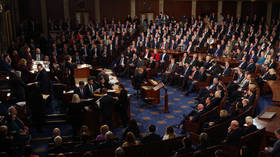Is US shale circling the drain?

‘Significant production slowdown’ is all around the headlines about the US shale patch these days.
Yet, the headlines have often missed one growing problem in the US oil industry—the abandoned, or ‘orphaned’ wells that bankrupt oil and gas operators leave behind on private, state, and federal land. With companies gone bust, it’s the state or the federal government that must pick up the tab for plugging those abandoned wells, cleaning up the sites, and restore lands to as close to their original natural states as possible.
The money set aside for reclaiming ‘orphan wells’ is not nearly enough to cover all the costs. Therefore, the well reclamation process is slow and increases the liabilities of the state and federal agencies responsible for cleaning up abandoned wells. This raises the risks of increasing costs for the taxpayer and of environmental disasters waiting to happen if unplugged abandoned wells start to leak.
Before drilling, companies are required to pay bonds for wells reclamation in case the wells become orphan. But those bonds are insufficient to cover all the costs for reclaiming a well. Actually, estimates from the Western Organization of Resource Councils (WORC) show that bond amounts are often too low to cover fully the costs of plugging, removing equipment, cleaning up, and restoring the lands as close to their original state as possible.
The problem with orphan wells on state land is less acute than the one with abandoned wells on federal land. State legislatures can amend regulations to ask for higher bonding requirements from the industry, but the office responsible for cleaning up abandoned wells on federal land, the Bureau of Land Management (BLM), must ask Washington for changes in legislation and requirements.
On the state level, most states in the West, including North Dakota, South Dakota, Alaska, and Colorado, have proposed significant increases in bonding requirements for oil and gas companies, WORC says. Montana and Wyoming are currently holding official discussions and oversight.
“Between an industry already prone to booms-and-busts and signs of economic slowdown, regulators and legislatures are working to make sure taxpayers are not on the hook for further cleanup of the growing amount of abandoned and ‘orphaned’ oil and gas wells,” WORC said.
Wyoming, for example, has had several thousand coal bed methane (CBM) wells orphaned by their owners since 2014 due to a plunge in natural gas prices, according to the Wyoming Oil and Gas Conservation Commission (WOGCC). Since 2014, there have been 5,775 wells orphaned, and the WOGCC has removed from the orphan well list 2,618 orphaned wells on state and private lands, the WOGCC said in a September update. Before 2014, there were around 500 orphaned wells documented over a twenty-year period, and all of those have been plugged and abandoned.
Also on rt.com The United States is set to 'drown the world' in oilNorth Dakota wants to keep the orphan well problem in check and is working on new rules. With low oil prices, the number of North Dakota’s orphaned oil and gas wells has increased by 10 percent over the past two years to exceed 700, according to Bismarck Tribune.
But while states have more power in requiring higher upfront payments from drillers to ensure safe and swift well reclamation, BLM has little power to do anything with the federal land and legislation by itself.
BLM was also found to have shortcomings in tracking the number of orphan wells on federal land and the liabilities those wells could incur, the US Government Accountability Office (GAO) said last year.
Last month, GAO said that BLM should address the risks from insufficient bonds to reclaim wells.
BLM updated its policy in November 2018, requiring field officers to review oil and gas bonds to determine whether the bond amount appropriately reflects the level of potential risk or liability.
But GAO recommended last month that Congress should consider giving BLM the authority to obtain funds from operators to reclaim orphaned wells and requiring BLM to implement a mechanism to do so.
Also on rt.com Time is almost up for US shale industryBLM, however, said that it lacks authority to develop a mechanism to obtain funds, so GAO changed the recommendation to BLM to a matter for Congressional consideration.
BLM says that it aims to improve its orphan well data tracking.
“Under the Trump Administration, BLM has taken action to both better track orphan wells and get proper accounting of them on our online platform,” a spokesman for the Interior wrote in an email to E&E News’ Heather Richards, adding that BLM invests in improving the process for dealing with idle and orphaned wells.
Across the United States, the number of orphan wells could further rise, due to the expected decline in US shale production growth, and to smaller drillers increasingly constrained in their access to capital. The recent drilling of longer laterals and the increased size of the wells could also mean that costs for reclamation of such wells, if they become orphaned, could be much higher than recent averages.
This article was originally published on Oilprice.com













